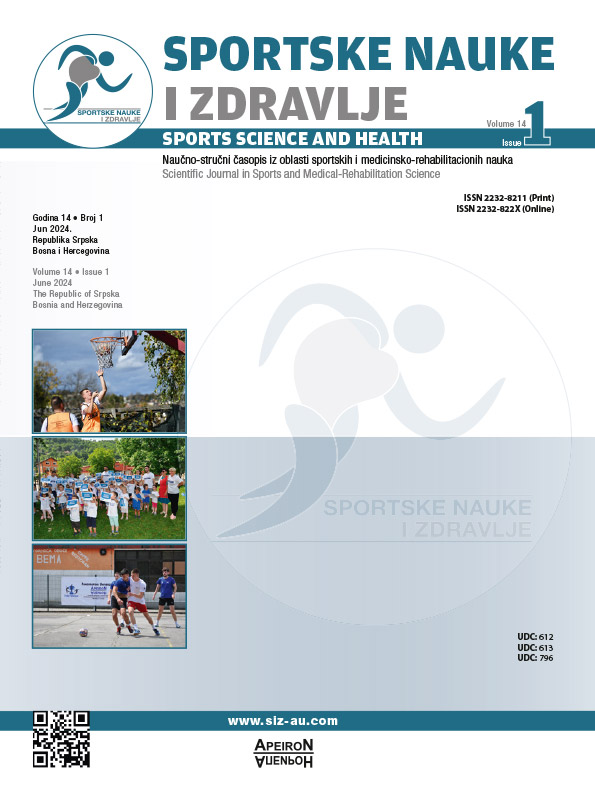A Cross-Sectional Study Exploring Sport Participation, Perceived Stress, and Its Association With Life Satisfaction Among University Students
DOI:
https://doi.org/10.7251/SSH2401005YKeywords:
life satisfaction, mental health, physical activity, sport participation, stress, studentAbstract
Physical activity in type of sport participation is well-known for its enormous benefit for mental health, affecting in better mood and improved quality of life. However, knowledge of how sport participation is associated with psychological status and life satisfaction during adolescence is insufficient. This study aims to explore sport participation in a university-based sample of youths, and to analyze how it correlated with mental health and life satisfaction. A total of 495 university students were recruited. The instruments included demographic characteristics questionnaire and previously validated measures such as Sport Participation (SLIM-18), Perceived Stress Scale (PSS-10), as well as The Satisfaction with Life Scale (SWLS) questionnaires. The research results observed that students’ sports participation and perception of stress were fall into the moderate category with percentage of 77.2% and 70.3, respectively. While life satisfaction was fall into neutral category (70.7%). The differences in sports participation and stress were significantly different (p<0.05) between genders, but not with life satisfaction (p>0.05). Sports participation was negatively correlated with perceived stress (p<0.05), but positively related to life satisfaction (p<0.01), while perceived stress was negatively associated with life satisfaction (p<0.01). Sports participation plays a crucial role in reducing mental health problems and improving psychological well-being of students during their university time. It also positively promotes higher life satisfaction and better physical as well as mental health.
